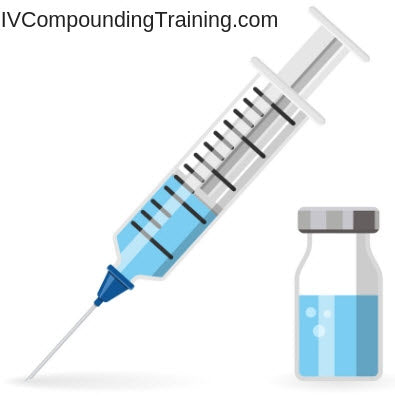Mental Health and Self-Care for Healthcare Professionals: Strategies for Well-Being
Working in the healthcare industry can be incredibly rewarding, but it also comes with its own set of challenges. Healthcare professionals are often faced with high-stress environments, long hours, and emotionally demanding situations. In order to provide the best care for others, it is essential for healthcare professionals to prioritize their own mental health and practice self-care.
The Importance of Mental Health for Healthcare Professionals
Healthcare professionals are constantly exposed to the physical and emotional pain of their patients. This can take a toll on their own mental well-being if not properly addressed. Ignoring the signs of burnout and neglecting self-care can lead to decreased job satisfaction, increased medical errors, and even mental health disorders such as anxiety and depression.
Recognizing the importance of mental health and self-care is crucial for both the individual healthcare professional and the quality of care they provide.
Strategies for Well-Being
Here are some effective strategies that healthcare professionals can incorporate into their daily lives to promote mental health and well-being:
- 1. Practice Mindfulness: Taking just a few minutes each day to engage in mindfulness exercises, such as deep breathing or meditation, can help reduce stress and increase focus.
- 2. Establish Boundaries: Set clear boundaries between work and personal life. Avoid bringing work-related stress home and make time for activities that bring joy and relaxation.
- 3. Seek Support: It's important for healthcare professionals to have a support system in place. This can include colleagues, friends, or professional counselors who can provide a listening ear and helpful advice.
- 4. Engage in Physical Activity: Regular exercise is not only beneficial for physical health but also for mental well-being. Find physical activities that you enjoy and make them a regular part of your routine.
- 5. Prioritize Sleep: Quality sleep is essential for optimal functioning. Create a relaxing bedtime routine and ensure you get enough sleep each night.
- 6. Practice Self-Compassion: Be kind to yourself and recognize that it's okay to prioritize your own needs. Avoid self-judgment and practice self-compassion in times of stress or difficulty.
- 7. Take Regular Breaks: Allow yourself regular breaks throughout the day to recharge and rejuvenate if time permits. Step away from work-related tasks and engage in activities that bring you joy.
- 8. Engage in Hobbies: Make time for activities that you enjoy outside of work. Engaging in hobbies can provide a sense of fulfillment and help reduce stress.
The Benefits of Self-Care for Healthcare Professionals
Practicing self-care is not selfish; it is a necessary component of maintaining overall well-being. By prioritizing self-care, healthcare professionals can experience several benefits:
- 1. Improved Mental Health: Taking care of your own mental health can help prevent burnout, reduce stress, and improve overall mood and well-being.
- 2. Increased Job Satisfaction: When healthcare professionals prioritize their own well-being, they are better able to find fulfillment in their work and experience greater job satisfaction.
- 3. Enhanced Patient Care: When healthcare professionals are mentally and physically healthy, they can provide higher quality care to their patients. They are more attentive, empathetic, and better able to make sound decisions.
- 4. Reduced Medical Errors: Burnout and fatigue can contribute to medical errors. By practicing self-care, healthcare professionals can reduce the likelihood of errors and improve patient safety.
- 5. Improved Work-Life Balance: Prioritizing self-care allows healthcare professionals to establish a healthy work-life balance. This helps prevent feelings of overwhelm and allows for time to engage in activities outside of work.
- 6. Increased Resilience: Self-care practices help build resilience, allowing healthcare professionals to better cope with the challenges and stresses of their profession.
Creating a Self-Care Plan
Developing a personalized self-care plan is essential for healthcare professionals to prioritize their well-being. Here are some steps to help you create your own self-care plan:
- 1. Assess Your Needs: Take time to reflect on your own physical, emotional, and mental needs. What activities or practices bring you joy and relaxation?
- 2. Set Goals: Identify specific self-care goals that are realistic and achievable. These can be daily, weekly, or monthly goals.
- 3. Plan Activities: Determine the self-care activities that align with your goals. This can include exercise, hobbies, socializing, or engaging in activities that help you relax.
- 4. Schedule Self-Care Time: Block off dedicated time in your schedule for self-care activities. Treat this time as non-negotiable and prioritize it as you would any other important commitment.
- 5. Adjust as Needed: Regularly assess and adjust your self-care plan based on your evolving needs and priorities.
Seeking Professional Help
While self-care strategies can be effective, it's important to recognize when professional help may be necessary. If you are experiencing consistent feelings of stress, anxiety, or depression, consider contacting a mental health professional who can provide guidance and support.
Remember, prioritizing your own mental health and practicing self-care is not a luxury; it is an essential component of being a healthcare professional. By taking care of yourself, you can continue to provide exceptional care to others.
